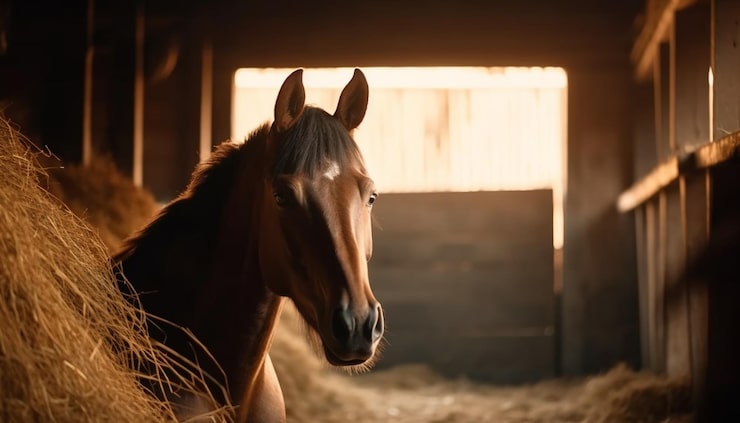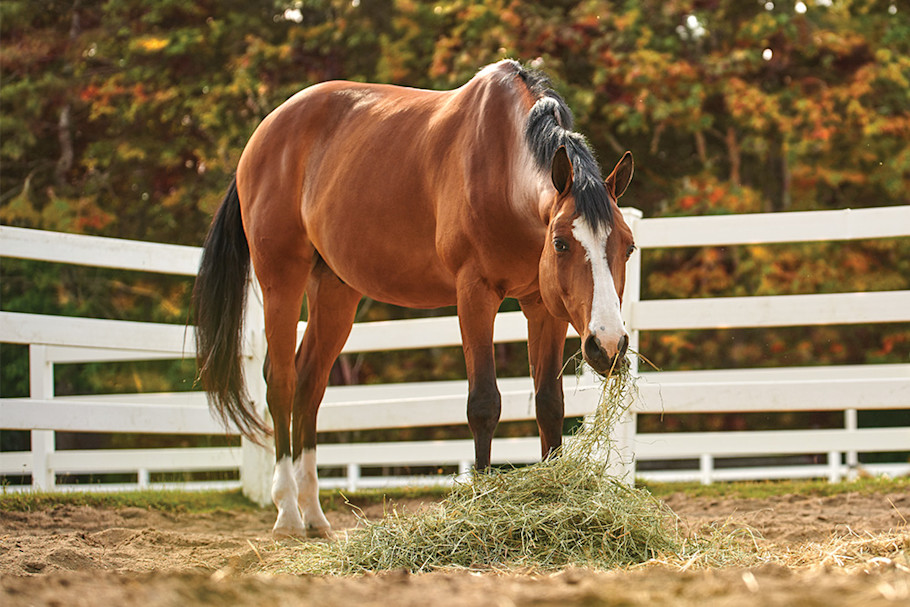As horses age, they, like us, encounter a variety of health challenges. One of the most common issues in senior horses is related to their eyes. Understanding senior horse eye problems is crucial for any horse owner. These issues, if left unchecked, can significantly impact your horse’s quality of life. In this article, we’ll delve into the various eye problems that senior horses may face and explore solutions to manage and treat these conditions effectively.

Understanding the Anatomy of a Horse’s Eye
To comprehend senior horse eye problems, it’s essential to have a basic understanding of the anatomy of a horse’s eye. The equine eye is remarkably similar to a human’s, consisting of the cornea, iris, lens, retina, and optic nerve. However, due to their size and position, horses’ eyes are more vulnerable to injuries and diseases.
Common Eye Problems in Senior Horses
Cataracts
Cataracts are a common issue in senior horses, characterized by clouding of the lens, leading to impaired vision. This condition can be caused by age, injury, or even genetics. Observing changes in your horse’s behavior, such as bumping into objects, can be a sign of cataracts.
Uveitis
Another prevalent condition is uveitis, an inflammation of the eye’s uveal tract. Often referred to as moon blindness, this condition can cause pain and sensitivity to light. Regular veterinary check-ups can help in early identification and treatment.
Corneal Ulcers
Corneal ulcers occur when there is an abrasion on the cornea, often caused by trauma or foreign objects. Symptoms include excessive tearing and squinting. Immediate veterinary attention is required to prevent complications.
Signs of Eye Problems in Senior Horses
Recognizing the signs of eye problems in senior horses is crucial for timely intervention. Look for symptoms such as:
- Cloudiness or discoloration in the eye
- Excessive tearing or discharge
- Swelling around the eye
- Changes in behavior, such as reluctance to move
Preventive Measures
While some eye problems are inevitable with age, certain preventive measures can help maintain your horse’s eye health:
Regular Veterinary Check-Ups
Schedule regular check-ups with a veterinarian to monitor your horse’s eye health. Early detection can prevent minor issues from becoming major problems.
Protective Gear
Consider using fly masks to protect your horse’s eyes from insects and debris, which can cause irritation and injury.
Treatment Options for Senior Horse Eye Problems
Treatment for senior horse eye problems depends on the specific condition. Here are common treatments:
Medications
Anti-inflammatory and antibiotic medications are often prescribed for conditions like uveitis and corneal ulcers to reduce inflammation and prevent infection.
Surgery
In cases of advanced cataracts or other severe eye conditions, surgical intervention may be necessary. Consult with a veterinary ophthalmologist for the best course of action.
Enhancing Quality of Life
Addressing senior horse eye problems is not just about treatment but also about enhancing your horse’s quality of life. Here are some tips:
Environmental Modifications
Ensure your horse’s environment is safe and free from obstacles that could lead to injury. Use soft bedding and provide adequate lighting.
Senior Horse Nutrition
Proper nutrition plays a vital role in maintaining eye health. Consider consulting resources like senior hay requirements to ensure your horse receives the necessary nutrients.

Frequently Asked Questions
What are the first signs of eye problems in senior horses?
Early signs include cloudiness, excessive tearing, and changes in behavior. It’s essential to consult with a veterinarian if these symptoms appear.
How often should senior horses have their eyes checked?
Regular veterinary check-ups, at least annually, are recommended for senior horses to monitor their eye health and catch any issues early.
Can diet impact a horse’s eye health?
Yes, a balanced diet rich in vitamins and minerals is crucial for maintaining overall health, including eye health. Consider consulting resources like aging horse supplements.
For further guidance on caring for older horses, you might find this article on caring for an older horse helpful.
This article contains affiliate links. We may earn a commission at no extra cost to you.
